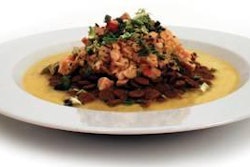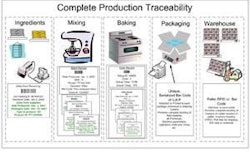We fed moderate-energy diets with moderate fat content—either saturated fat (beef tallow), saturated fat plus citrus flavanones or monounsaturated fat (olive oil)—to 20 overweight cats (mean ± SD body weight of 5.2 ± 0.2 kg and mean body condition score of 7.8 ± 0.2 on a nine-point scale) and compared the effects on plasma lipids and urinary F2-isoprostane concentrations.
Citrus flavanones supplementation of the saturated fat diet was associated with lower energy intake and with lower plasma lipids and urinary F2-isoprostane concentrations than with saturated fat alone. Monounsaturated fat feeding resulted in lower food intake than with saturated fat. However, plasma lipids concentrations remained within reference limits.
Although the clinical relevance of these findings is unknown, the significant differences indicate that lowering energy intake with citrus flavanones supplementation or substituting saturated fat for monounsaturated could be good strategies for decreasing plasma lipids concentration and oxidative stress in overweight cats, even before considerable loss of body weight is observed.
Source : I. Jeusette et al., 2010. Effects of consuming diets containing various fats or citrus flavanones on plasma lipid and urinary F2-isoprostane concentrations in overweight cats. AJVR 71: 1039-1044. doi: 10.2460/ajvr.71.9.1039

















